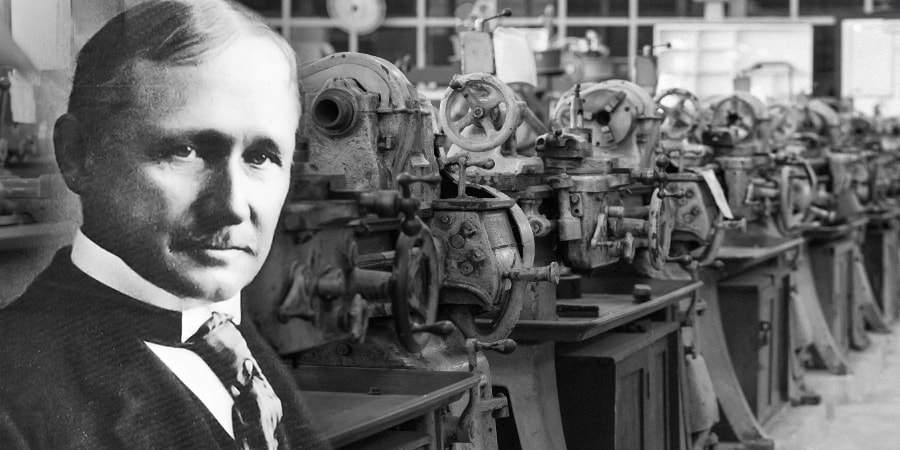Introduction
I have always been fascinated by Frederick Taylor and scientific management, probably due to me sharing the same surname and possibly for my love of measuring things and statistics
Anyway, I thought I would use my latest newsletter blog to write an articile about him
Early Life
Frederick Winslow Taylor was born on 20th March 20, Germantown, Pennsylvania, USA into a wealthy Quaker family.
He initially pursued a legal career, studying at Phillips Exeter Academy with plans to attend Harvard.
However, he abandoned those plans due to deteriorating eyesight. Instead, Taylor turned to mechanical engineering and joined an apprenticeship at a pump-manufacturing company.
Career and Key Contributions
Taylor began his engineering career at the Midvale Steel Works, where he quickly rose through the ranks to become chief engineer. During this time, he developed his theories on improving industrial efficiency, which later became the foundation of Scientific Management.
- Time Studies – Taylor studied workers’ tasks and broke them into smaller, measurable components. This allowed him to determine the “one best way” to perform a task efficiently.
- Standardization – He advocated for standardized tools, techniques, and work processes to enhance productivity.
- Task Specialization – Workers were assigned tasks that matched their abilities, minimizing waste and maximizing output.
- Incentive Systems – Taylor introduced performance-based pay systems to motivate workers.
- Management Principles – He emphasized that management should scientifically plan work, rather than relying on tradition or rule of thumb.
Scientific Management and Legacy
Taylor’s ideas were formally presented in his landmark book, The Principles of Scientific Management (1911). His methods revolutionized manufacturing, particularly in industries like steel, textiles, and automotive.
- Develop a science for each element of work.
- Select, train, and develop workers scientifically.
- Cooperate with workers to ensure tasks are performed correctly.
- Divide work between management and labour, assigning planning to managers.
His techniques laid the groundwork for industrial engineering and modern operations management.
Impact and Criticism
While Taylor’s methods significantly improved productivity, they also faced criticism for treating workers as mere cogs in a machine.
Labor unions opposed his approach, arguing that it prioritized efficiency over worker satisfaction and welfare.
Despite this, his principles remain integral to modern management practices.
Legacy
Frederick Winslow Taylor is remembered as a pioneer of scientific management and industrial efficiency. His principles continue to influence management practices in industries worldwide, making him a foundational figure in the study of management and engineering.


Recent Comments